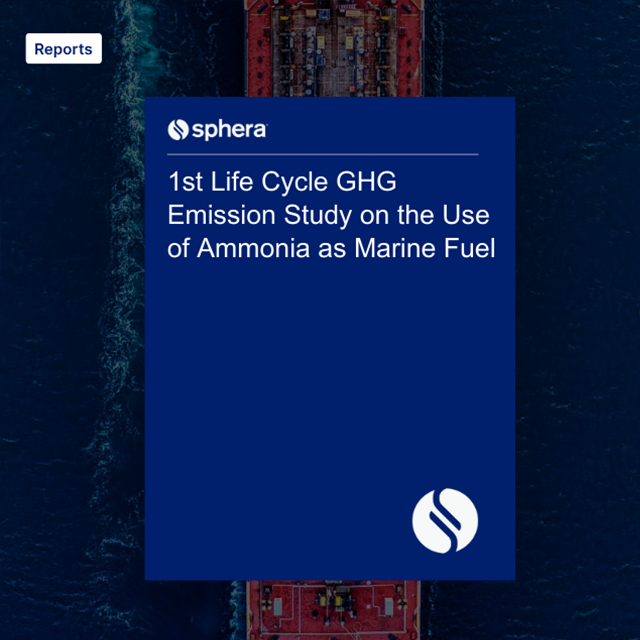The study is part of a series on greenhouse gas (GHG) emission studies in the maritime sector to reflect ongoing discussions about alternative fuel developments throughout the marine fuels value chain. This “1st Life Cycle GHG Emission Study on the Use of Ammonia as Marine Fuel” is an extension of the “2nd Life Cycle GHG Emission Study on the Use of LNG as Marine Fuel”.
This study analyses the life cycle GHG emissions of the use of Ammonia (NH3) as marine fuel, based on current primary data (measured, estimated, or targeted) compared with conventional fuels (HFO and MGO).
It analyses different ammonia supply chains (green, blue and grey), considers different ship engine technologies, and investigates three scenarios (min., base and max. emission case). By using the latest first-hand primary data, this study is the first of its kind providing the industry with an independent fact-based document.
The study, commissioned by the industry organization SGMF, was conducted by Sphera according to ISO 14040/14044 standards and was peer-reviewed in accordance with ISO/TS 14071 by a panel of independent experts.










